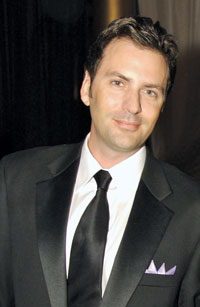From African hip-hop to the National Opera’s contemporary concoction, new rhythms of the season have us dancing to a different beat.
By Michael M. Clements
It was two – supposedly similar – worlds colliding; but literally and figuratively, two worlds apart. On one side, P Diddy’s entourage, decked out head-to-toe in matching white outfits, accessorized in enough gold jewelry to make a Pharaoh blush, attitudes hidden behind smoky reflective lens.
On the other side, Emmanuel Jal, Sudanese child soldier turned international hip-hop star, dressed in a causal tee-shirt, pumas and relaxed jeans; no sunglasses – it was nighttime after all. The soft-spoken Jal had just finished a sound check for his 18th Street Films/WL-sponsored Sept.
20th concert at Ibiza Night Club. As P Diddy, et al rolled up for the Sean John fall fashion show they ignored Jal with cell phones coolly pressed to their ears. They had no idea they had just passed the future of hip-hop. Don’t get me wrong – I’m not crowning Jal “king of hip-hop.
” It’s more about the direction the message of the art form is taking.
Much like Bob Marley, Jal’s songs are conscious social and political commentaries – minus the gangsta self-aggrandizing. It reminds me of a Chinese proverb: Take a glass jar and filled it half-way with marbles, shake it, and it makes a lot of noise. Take the same jar, fill it to the top with marbles, shake it, and it makes no sound.
Get it grasshopper?





